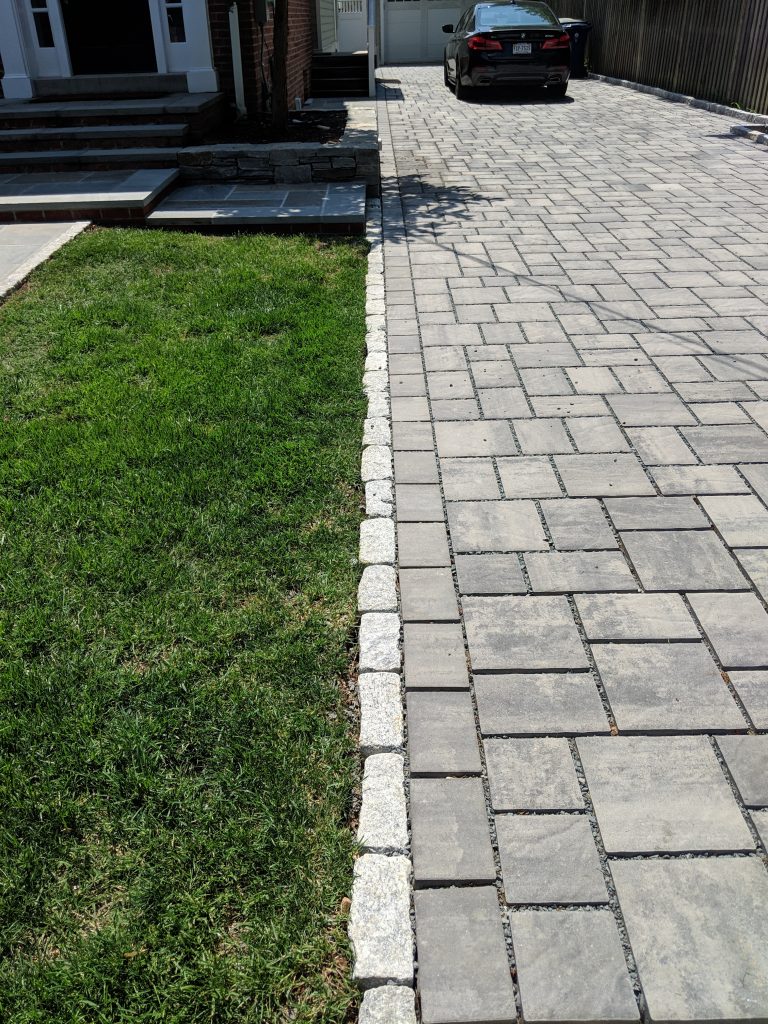Green Resources
Going Green
“Green” means different things to different people but centers around energy efficiency, recycling, and responsible use of our natural resources, including rainwater. Capitol Hardscapes is committed to helping our customers “live green” using aesthetically pleasing permeable paving products. Permeable pavers prevent water run-off-related problems like pollution, erosion and flooding by allowing rainwater to drain directly into the ground through open graded gravel systems. We are committed to playing our part in reducing waste by sending excavated concrete, aggregate and debris to recycling centers in the Metro area.
Capitol Hardscapes is one of the few hardscaping companies in the DMV approved to partner with the DC River Smart, Montgomery County RainScapes and PG County Rain check Programs. These initiatives provide incentives to DC, Montgomery County and Prince George’s County homeowners who wish to reduce stormwater pollution by installing pervious pavers.

Why might stormwater runoff be a problem?
As it flows over the land surface, stormwater picks up potential pollutants that may include sediment, nutrients (from lawn fertilizers), bacteria (from animal and human waste), pesticides (from lawn and garden chemicals), metals (from rooftops and roadways), and petroleum by-products (from leaking vehicles). Pollution originating over a large land area without a single point of origin and generally carried by stormwater is considered non-point pollution. In contrast, point sources of pollution originate from a single point, such as a municipal or industrial discharge pipe. Polluted stormwater runoff can be harmful to plants, animals, and people.
What you can do?
Installing permeable pavers results in a direct reduction to peak stream flows during storms, which can help reduce erosion as well as the frequency and severity of flooding in downstream locations. Water that infiltrates into the soil replenishes groundwater, ensuring productive aquifers within the community. An added benefit to permeable surfaces is that pollutants slowly permeate through the crushed stone and soil layers, allowing natural filtration processes to improve water quality by retaining some pollutants that would otherwise enter stream and rivers with runoff. With proper maintenance, the longevity of permeable pavements typically exceeds that of conventional systems.
Source: USGS.GOV

